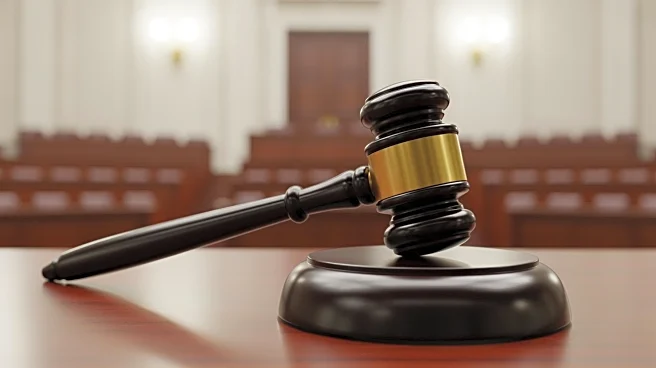What's Happening?
Nancy Pelosi made history on January 4, 2007, by becoming the first woman to serve as Speaker of the U.S. House of Representatives. This significant achievement followed the Democratic Party's victory
in the 2006 midterm elections, which allowed them to gain control of the House. Pelosi's appointment as Speaker marked a pivotal moment in U.S. political history, symbolizing progress in gender equality within the nation's political landscape. On her first day in office, Pelosi provided CBS News Bay Area reporter Hank Plante with a tour of her Capitol office, highlighting the significance of her new role and the responsibilities it entails.
Why It's Important?
Nancy Pelosi's ascension to the role of Speaker of the House represents a landmark achievement in the fight for gender equality in U.S. politics. As the first woman to hold this position, Pelosi's leadership challenges traditional gender roles and sets a precedent for future female political leaders. Her role as Speaker is crucial in shaping legislative priorities and guiding the House's agenda, impacting public policy and governance. Pelosi's leadership may inspire more women to pursue careers in politics, potentially increasing female representation in government and influencing policy decisions that address gender-specific issues.
What's Next?
As Speaker of the House, Nancy Pelosi is expected to play a key role in advancing the Democratic Party's legislative agenda, focusing on issues such as healthcare reform, environmental policies, and economic growth. Her leadership will be instrumental in navigating the political dynamics within the House and working with other branches of government to enact meaningful legislation. Pelosi's tenure may also involve addressing challenges related to bipartisan cooperation and managing intra-party dynamics, as she seeks to unify her party and effectively represent the interests of her constituents.
Beyond the Headlines
Nancy Pelosi's historic achievement as the first woman Speaker of the House may have broader cultural implications, encouraging a shift towards greater gender inclusivity in political leadership roles. Her success could inspire societal changes in perceptions of women's capabilities and leadership potential, contributing to a more equitable political environment. Additionally, Pelosi's leadership style and policy priorities may influence the Democratic Party's approach to addressing issues such as gender equality, social justice, and economic disparity, potentially leading to long-term shifts in U.S. political discourse.









